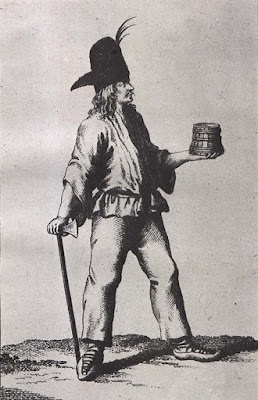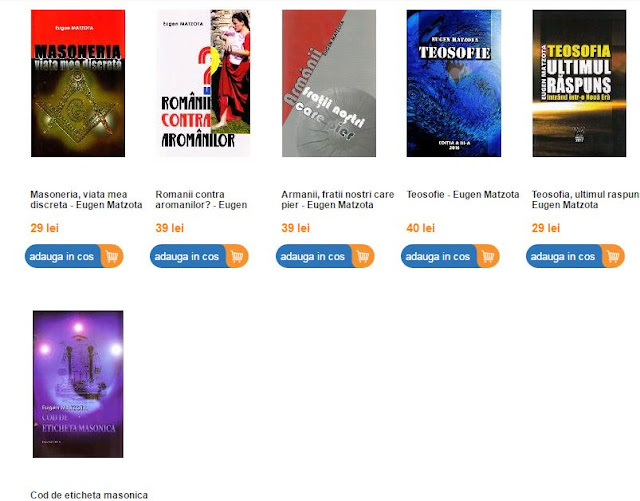A-Romanians, Romanians?
By Eugene Matzota
For somebody who is not connected to the Balkan area, this word doesn’t mean a thing.
Aromanians, A-Romanians, and more than this, Vlachs?
What could this mean? Probably, and
this is the first guess, they are not Romanians, as the name suggests.
First of all, let’s see what Encyclopædia Britannica , namely Prof. Victor A. Friedman, Andrew W. Mellon Distinguished Service Professor, Dept. of Linguistics, University of Chicago, and Director, Center for East European and Russian/Eurasian Studies, has to say about this:
Vlach, also spelled Vlah, autonyms Armãn and Rãmãn, also called Aromanian, Macedoromanian, and Macedo-Vlach, any of a group of Romance-language speakers who live south of the Danube in what are now southern Albania, northern Greece, the Republic of Macedonia, and southwestern Bulgaria. Vlach is the English-language term used to describe such an individual. The majority of Vlachs speak Aromanian, […] [1]
Well, if you try to find an answer
in Larousse, the answer is much
shorter and without any doubt, the
Aromanians are Romanians!:
Aroumains - Population d'origine roumaine, qui a émigré aux IXe-Xe s. dans la péninsule balkanique et vit aujourd'hui en Grèce, en Serbie-et-Monténégro et en Albanie.[2]
One can't find nothing about this word, ‘Aromanian,’
in Merriam-Webster, just ‘Vlach’,
therefore this is what you may find there:
A member of a people scattered through southeastern Europe originating in the early middle ages probably in the Balkans, speaking a Romanian dialect, and including chiefly mountain herdsmen (as in northwestern Greece) —called also Wallach, Wallachian.[3]
Therefore, after trying in vain to find
an answer to this letter A placed
before the word Romanian‚ I have
decided to write this book…Well, this is not a new idea, since it occurred to me when I found out
that my family had a long Aromanian history.
It seems that my ancestors were among the founding families of the Principality of Epirus in 1231 and this has given me the real meaning of all those memories from my family, particularly the way in which I was brought up at home, with my family using a very different set of values from the ordinary ones.
Unfortunately, this happened only some years ago. The first thing I did, as an Aromanian, was to translate and to publish a challenging book written by Stefanoski - Al Dabija: ‘Short descriptive history about the origin of the Arm’n-Macedonians (From pre-history to the colonization of Dacia)’.
Later on, gathering enough material to publish myself a challenge to all those books about Aromanians written before me, I managed to publish in 2012 ‘The history of Aromanians in data’, the first book containing only data and facts about ‘the Aromanian issue’, ‘Die aromunische Frage’, as Max Peyfuss said.
Being then aware of that real need for information, data and facts, not opinions, I’ve begun to write a more complex work, based in part on what was well-structured in ‘The History of Aromanians in Data’. Where there was nothing important to add or to change, I’ve just preserved ideas as they were, but only after I’ve taken advice with experts in Aromanian issues.
It seems that my ancestors were among the founding families of the Principality of Epirus in 1231 and this has given me the real meaning of all those memories from my family, particularly the way in which I was brought up at home, with my family using a very different set of values from the ordinary ones.
Unfortunately, this happened only some years ago. The first thing I did, as an Aromanian, was to translate and to publish a challenging book written by Stefanoski - Al Dabija: ‘Short descriptive history about the origin of the Arm’n-Macedonians (From pre-history to the colonization of Dacia)’.
Later on, gathering enough material to publish myself a challenge to all those books about Aromanians written before me, I managed to publish in 2012 ‘The history of Aromanians in data’, the first book containing only data and facts about ‘the Aromanian issue’, ‘Die aromunische Frage’, as Max Peyfuss said.
Being then aware of that real need for information, data and facts, not opinions, I’ve begun to write a more complex work, based in part on what was well-structured in ‘The History of Aromanians in Data’. Where there was nothing important to add or to change, I’ve just preserved ideas as they were, but only after I’ve taken advice with experts in Aromanian issues.
Excerpt from my next book on Die aromunische Frage






